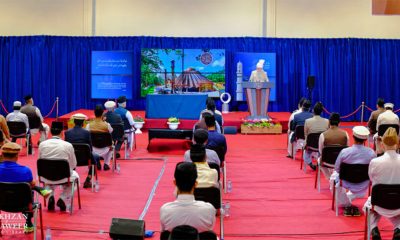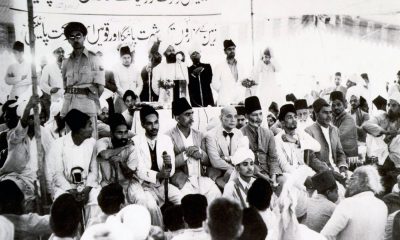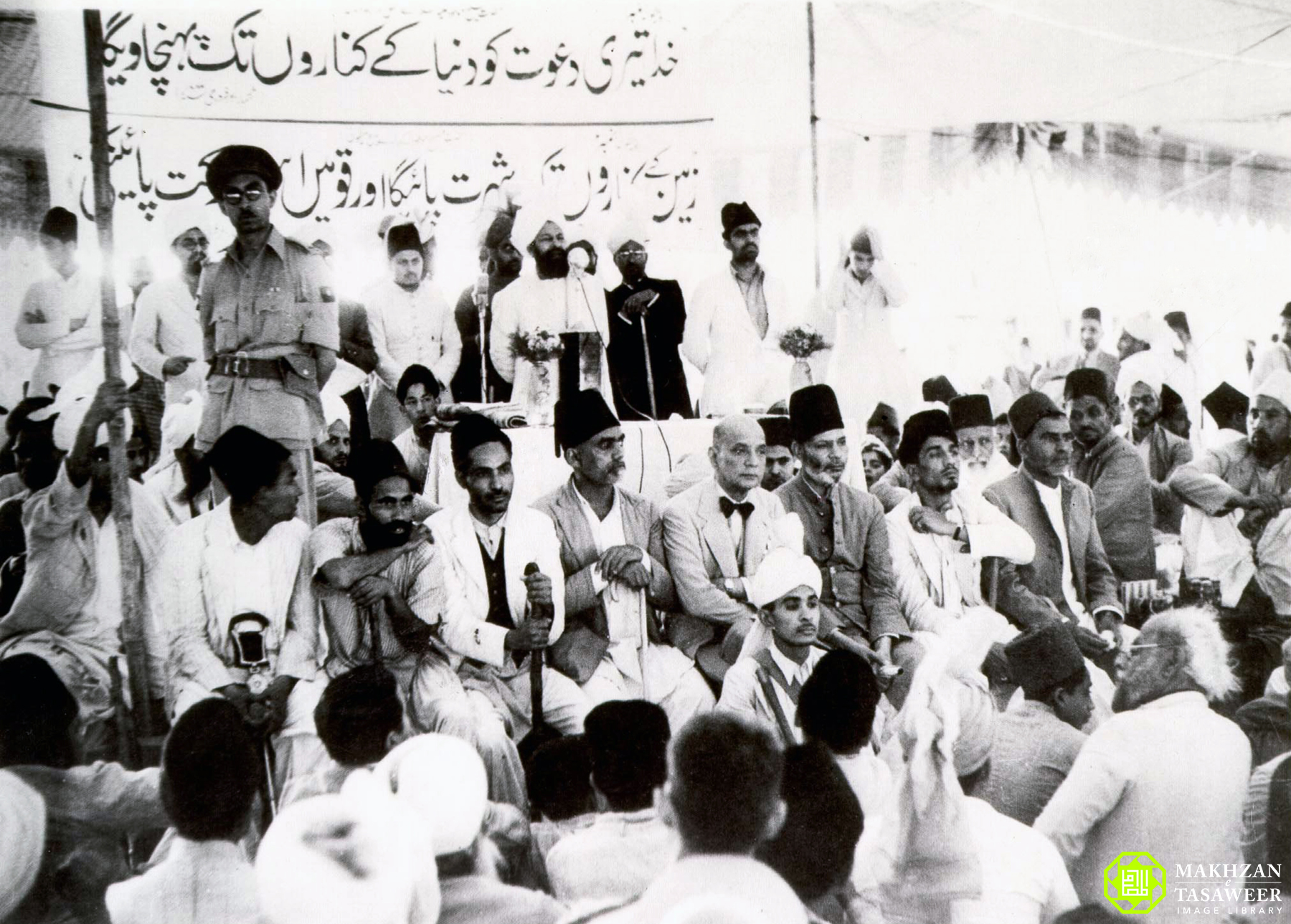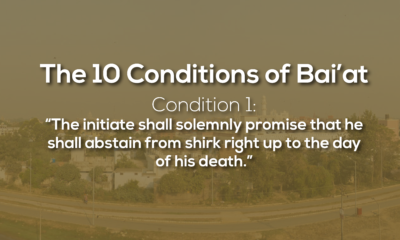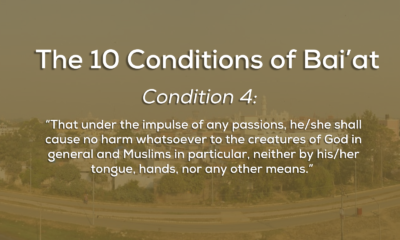These were days of grave danger for the Muslims and the Holy Prophet (sa) was receiving horrific news from all four ends. However, the greatest danger posed to the Holy Prophet (sa) was from the Quraish of Makkah, who had grown very bold and daring due to the battle of Uḥud. Perceiving this threat, in the month of Safar 4 A.H., the Holy Prophet (sa) assembled a party of ten Companions, appointed Asim bin Thabit (ra) as their Amir and ordered them to secretly go towards Makkah and obtain intelligence with regards to the Quraish, and then inform him about their plans and motives. However, this party had not yet departed, when a few people from the tribes of Aḍal and Qarah presented themselves before the Holy Prophet (sa), and said that many people from among their tribes were inclined towards Islam and that the Holy Prophet (sa) should send a few men with them, who could convert them to Islam and educate them. The Holy Prophet (sa) was happy to hear their request and the same party which had been assembled for the reconnaissance mission was sent off with them instead. However, in actuality, as was later discovered, these people were liars and had come to Madinah upon the incitement of the Banu Laḥyan, who sought revenge for the execution of their chief, Sufyan bin Khalid, and had thus contrived the plan that when the Muslims come out of Madinah on this pretence, they would attack them. In lieu of this service, the Banu Laḥyan promised the people of Aḍal and Qarah a hefty reward of many camels. When the treacherous people of Adal and Qarah reached between Asfan and Makkah, they secretly sent word to the Banu Laḥyan that the Muslims were accompanying them and that they should come as well. Upon this, 200 young men from the Banu Laḥyan, 100 of whom were archers, set forth in pursuit of the Muslims, and subdued them at a place known as Raji. But how could 10 men compete against 200 warriors? The Muslims, however, had not been taught to throw in their arms. The Companions immediately ascended to a nearby hillock and prepared for battle. The disbelievers, who did not consider deception as being reprehensible, called out to them and said, “Come down from the mountain, we give you a firm promise that we shall not kill you.” Asim (ra) responded, “We have no confidence whatsoever in your treaties and agreements. We cannot descend on your guarantee.” Then, he raised his head towards the heaven and said, “O God! You are witnessing our state. Do convey knowledge of our condition to Your Messenger.” Hence, Asim (ra) and his Companions stood and fought and were finally martyred in battle.
When seven Companions had been put to death, and only Khubaib bin Adiyy (ra), Zaid bin Dathinah (ra), and one other Companion were left, the disbelievers whose actual desire was to capture these people alive, called out again and said, “There is still time. Come down and we promise not to cause you any harm.” This time, these innocent Muslims fell into their trap and descended. However, as soon as they stepped down, the disbelievers tied them with the strings of their arrow bows. Upon this, the Companion of Khubaib (ra) and Zaid (ra), whose name has been recorded in history as being Abdullah bin Ṭariq (ra), could not restrain himself and called out, “This is your first breach of agreement and who knows what you shall do hereafter,” and Abdullah (ra) refused to continue along with them. For some distance, the disbelievers dragged Abdullah (ra) along, beating and assaulting him, and then killed him and left him for dead. Moreover, now that their revenge had been sought, in order to please the Quraish, and also in the greed of money, they took Khubaib (ra) and Zaid (ra) and made way to Makkah; upon reaching there, they sold both of them to the Quraish. As such, Khubaib (ra) was purchased by the sons of Ḥarith bin Amir bin Naufal, because Khubaib (ra) had slain Ḥarith in the battle of Badr and Zaid (ra) was purchased by Ṣafwan bin Umayyah.
These two Companions were still in a state of captivity when one day Khubaib (ra) asked the daughter of Ḥarith if he could be given a razor for his own personal use, and she gave him one. When Khubaib (ra) was holding this razor, a small child of the daughter of Ḥarith happened to come over to Khubaib (ra) playing here and there; and he placed him on his thigh. When the mother saw that Khubaib (ra) was holding a razor in his hand and her child was sitting on his thigh, she began to tremble and her face turned pale in fear. When Khubaib (ra) saw her, he understood that she was fearful and said, “Do you think that I will kill this child? Do not think this. God-Willing, I shall never commit such an act.” Upon hearing these words, the faded countenance of the mother lit up. This lady was so deeply influenced by the high moral character of Khubaib (ra) that afterwards, she would always say,






